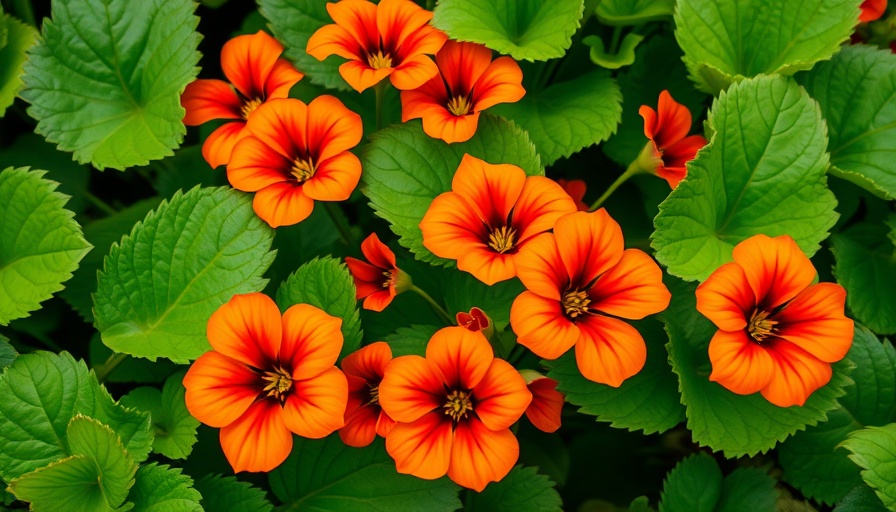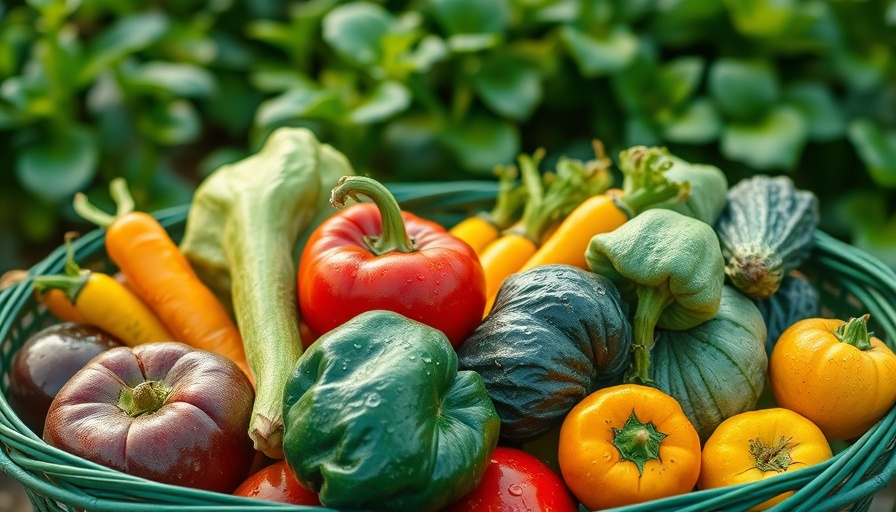
Embracing Nature: Dale’s Michigan Garden Transformation in 2025
As we turn the pages of a new gardening era, Dale’s Michigan garden in 2025 stands as a testament to the evolving relationship between people and nature. With sustainable practices and a focus on biodiversity, this garden embodies the essence of green living and well-being. Dale's journey reflects the broader trend of people adopting eco-friendly methods and reshaping their outdoor spaces to thrive within the changing climate.
Historical Context: The Evolution of Gardening
Throughout history, gardens have been spaces for beauty, nourishment, and respite. In recent years, however, the concept of gardening has shifted dramatically. From organic farming to permaculture, the drive towards sustainable living is illustrated in Dale's garden. Adapting to this ethos, Dale began integrating low-maintenance plants, focusing on native species that not only flourish in Michigan's climate but also promote local wildlife and reduce resource consumption.
The Value of Sustainability in Gardening
Having a sustainable garden is more than just an aesthetic choice; it is a lifestyle choice. Research indicates that such practices can lead to greater mental health benefits, including reduced anxiety and improved mood. By allocating time to interact with plants, according to mental health experts, individuals can harness nature’s restorative power. In Dale’s garden, this connection transforms into a sanctuary where he finds peace after a hectic day.
Future Predictions: How Gardens Will Shape Our Environment
The future of gardening is not just about growing food; it is about cultivating a sustainable environment. Experts predict that gardens will increasingly serve as biodiversity hotspots, especially as urban settings expand. Dale's garden, filled with resilient pollinators and hardy plants, exemplifies these predictions in practice. His commitment to nurturing a vibrant ecosystem reflects a broader movement toward prioritizing ecological balance in community gardening efforts.
Local Flora: Building a Resilient Ecosystem
Another remarkable feature of Dale’s garden is his chosen flora. Compiled predominantly of Michigan natives, the plants are well-adapted to the local environment, require less water, and attract local wildlife. This not only illustrates sustainability in practice but also empowers the surrounding biodiversity. Gardening enthusiasts can follow Dale's lead by selecting native plants that best thrive in their local soils, promoting both aesthetic and ecological benefits.
Inspirational Anecdote: Dale’s Gardening Journey
Reflecting on his gardening journey, Dale shares a pivotal moment when he realized the importance of adaptation and resilience in gardening. After a harsh winter where many of his plants didn’t survive, he embraced a mindset shift: learn from nature’s cycle of growth and decay. This story is not just an anecdote; it is a reminder that every gardener faces challenges and that perseverance often leads to greater beauty and wisdom in our gardens.
Practical Tips: Creating Your Own Michigan-Inspired Garden
If you’re inspired by Dale’s journey and want to create your own garden oasis, start small with a few native plants. Consider planting:
- Michigan Lily: A resilient flower that dazzles with its bright orange blooms.
- Bee Balm: A favorite of pollinators that adds vibrant splashes of red and purple.
- Black-Eyed Susans: Hardy and cheerful, these flowers provide ample nectar for bees.
By integrating these plants into your garden, you are not just enjoying their beauty – you’re contributing towards the ecosystem and inspiring a sustainable future.
The Human Connection: Growing Together
Gardening is inherently a communal activity. Dale's story encourages local gardening societies to unite not just in beautifying landscapes, but in supporting one another's efforts towards sustainable practices. Sharing seeds, ideas, and stories creates a network of support that can influence how local communities approach conservation and sustainability in their own gardening journeys.
Ultimately, Dale’s garden serves as a microcosm of the possibilities available when we take the time to cultivate not only our gardens but our relationships with the environment and one another. It’s an invitation to reengage with nature in meaningful ways and promote a healthier community.
As we learn from Dale's experience, it’s clear that gardening is not just about the plants – it’s about the connections we make and the environment we nurture. Whether you have a sprawling yard or a modest balcony, consider how you might apply these insights to your gardening habits. Even a single plant can lead to positive change!
 Add Row
Add Row  Add
Add 




Write A Comment